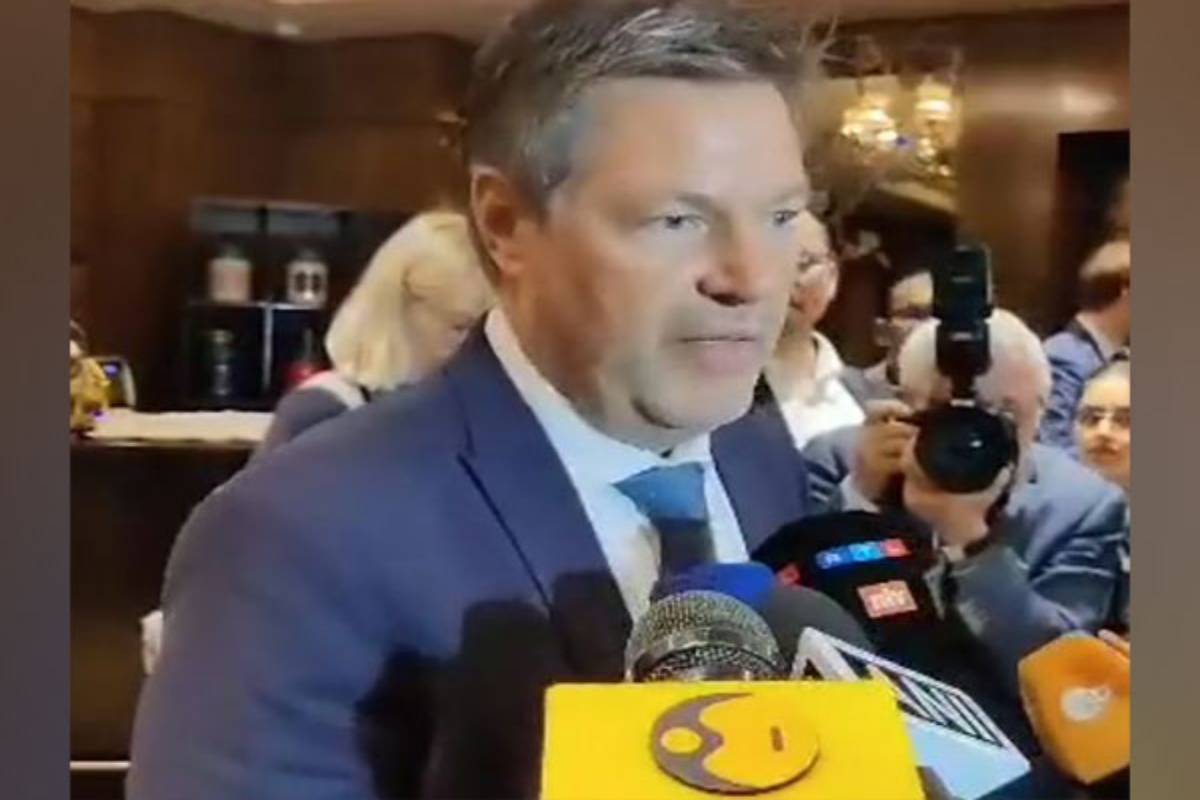Explosions heard across Ukraine amid missile attacks
Explosions were heard in several Ukrainian regions late on Friday amid Russian missile attacks, local media outlets reported.
Meanwhile, Russian envoy to India Denis Alipov said that the German minister will “do better to concentrate on India-Germany relations.”

[Photo : ANI]
Urging democracies worldwide to be clear in their political position on denouncing Russian aggression, visiting German minister Robert Haeck said on Thursday that they should refrain from using the sanctions system to give more credit and money to Russia, which he said will fuel its ongoing war with Ukraine.
German Vice-Chancellor and Minister of Economic Affairs and Climate Action, Robert Habeck who is on a three-day visit to the country said this in the backdrop of the imposition of a price cap on seaborne Russian crude oil by Group of Seven (G7) countries and their allies. Talking to reporters on the sidelines of the Indo-German Business Forum this morning here, the German minister said, “Well, from the European side, the Russian aggression on Ukraine is unprecedented. It destroyed the European peace order built up after the Second World War. So this is an event that has changed everything in Europe. I know that Europe is a little bit away from Asia, of course. Still, on the other hand, this is of such importance that I urge all the democracies worldwide to be clear in language and political position that this is not acceptable.”
“In no way this is acceptable. We answered with sanctions against it, also with military support for Ukraine. The sanction system means that we haven’t banned the trade of oil, but there’s a price cap on it. That means that you are allowed to buy crude oil… Okay. This is within the sanctioned system. But making money out of it, bringing more money to Russia, using this sanction system to benefit from it, is not the idea of it,” Habeck said.
The price cap was imposed on December 5, 2022, by the G7 countries and their allies. The Group of Seven agreed to a USD 60 dollar per barrel price cap on Russian seaborne crude oil. Through the price ceiling, they sought to restrict Russia’s revenue while also ensuring the global crude oil supply is maintained.
Meanwhile, Russian envoy to India Denis Alipov said that the German minister will “do better to concentrate on India-Germany relations.”
“Noted reports that one of the goals of German Vice Chancellor Robert Habeck’s visit to India is to discuss Russia-India cooperation. He’d do better to concentrate on India-Germany relations instead as he’s supposed,” Alipov tweeted.
“Unfortunately Germany has abandoned independent position on security issues in Europe making its voice in the Ukranian conflict irrelevant,” the Russian envoy tweeted.
The German Vice-Chancellor and Minister of Economic Affairs and Climate Action Habeck arrived in the national capital early Thursday, for a three-day visit to the country.
During his stay, Vice-Chancellor Habeck is expected to hold high-level meetings with India’s Minister of Commerce and Industry, Piyush Goyal, as well as with the Minister of External Affairs, Subrahmanyam Jaishankar, and Power and New and Renewable Energy Minister RK Singh, the German Embassy earlier said.
Vice-Chancellor Habeck will visit several Indo-German joint ventures in Delhi and Mumbai.
On the last leg of his visit, Vice-Chancellor Habeck will participate in the G20 Energy Ministers meeting in Goa.
Advertisement